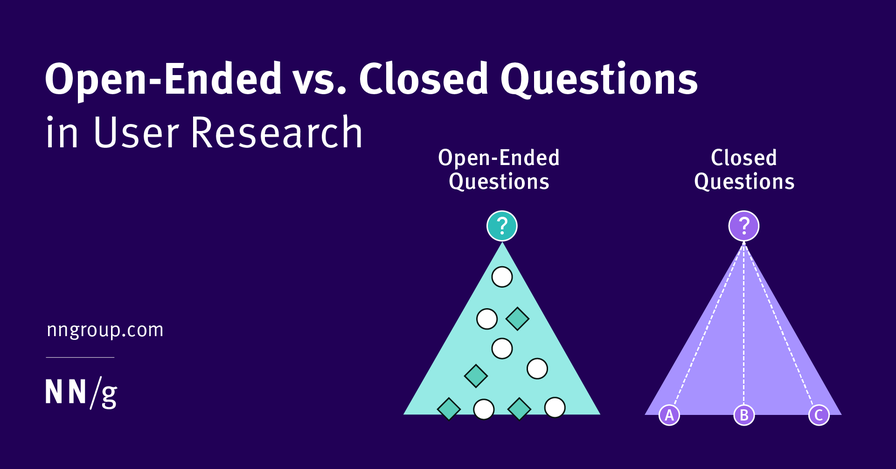Open-Ended vs. Closed Questions in User Research

my notes ( ? )
There are two types of questions we can use in research studies: open-ended and closed.
Definition: Open-ended questions allow participants to give a free-form text answer.
Definition: Closed questions (or closed-ended questions) restrict participants to one of a limited set of possible answers.
Open-ended questions encourage exploration of a topic; a participant can choose what to share and in how much detail. Participants are encouraged to give a reasoned response rather than a one-word answer or a short phrase.
Examples of open-ended questions include:
- Walk me through a typical day.
- Tell me about the last time you used the website.
- What are you thinking?
- How did you feel about using the website to do this task?
Note that the first two open-ended questions are commands but act as questions. These are common questions asked in user interviews to get participants to share stories. Questions 3 and 4 are common questions that a usability-test facilitator may ask during and after a user attempts a task, respectively.
Closed questions have a short and limited response. Examples of closed questions include:
- What’s your job title?
- Have you used the website before?
- Approximately, how many times have you used the website?
- When was the last time you used the website?
Strictly speaking, questions 3 and 4 would only be considered “closed” if they were accompanied by answer options, such as (a) never, (b) once, (c) two times or more. This is because the number of times and days could be infinite. That being said, in UX, we treat questions like these as closed questions.
Read the Full Post
The above notes were curated from the full post www.nngroup.com/articles/open-ended-questions/.Related reading
More Stuff I Like
More Stuff tagged ux research , research methods , user experience research